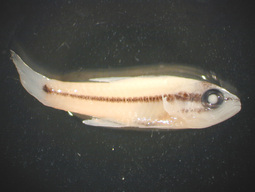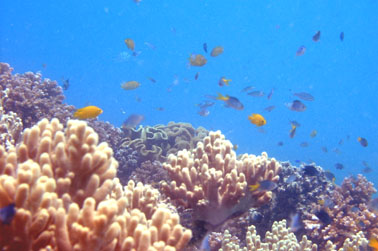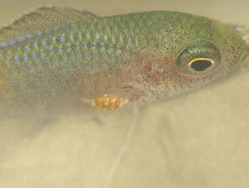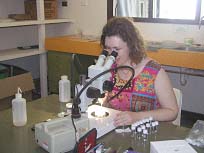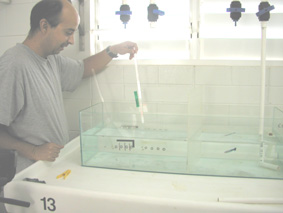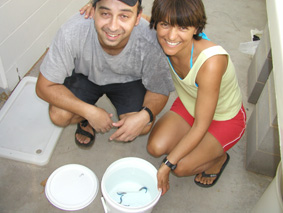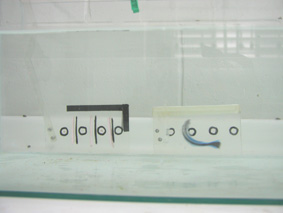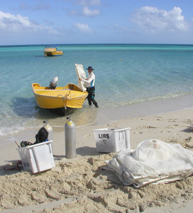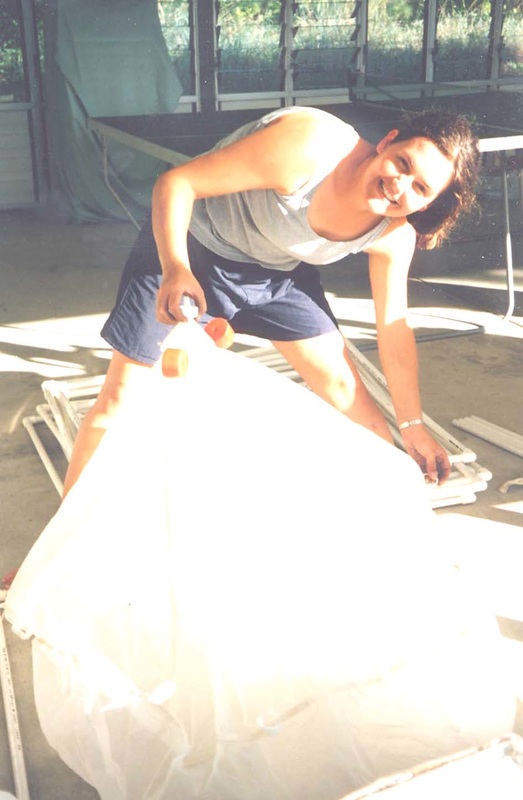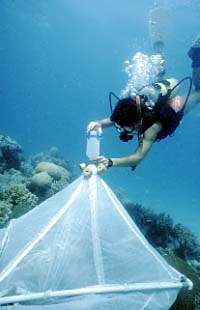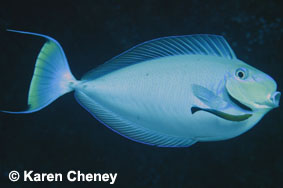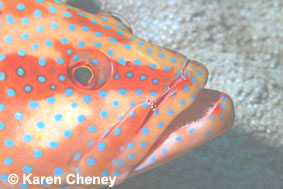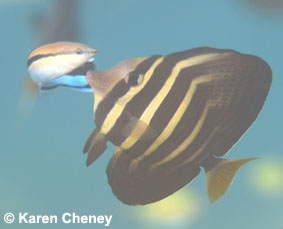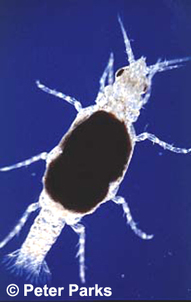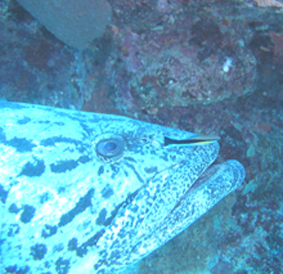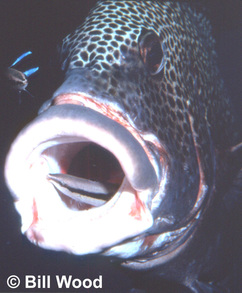Dr. Alexandra Grutter (Lexa)

Position: Chief Investigator and Honorary Senior Lecturer
Education:
Research Interests: Cleaning behaviour, cooperation, fish parasites, coral reef ecology
Awards:
Education:
- 1995 PhD in Marine Ecology, James Cook University (JCU), Department of Marine Biology, Townsville, Australia, "Parasites in the cleaning interactions between the cleaner wrasse Labroides dimidiatus and fish" Supervisors: Professor J.H. Choat and Professor David R. Bellwood.
- 1989 BA Honors in Aquatic Biology, University of California, Santa Barbara, CA (UCSB).
- 1986 Kauai Community College (KCC), Hawaii.
Research Interests: Cleaning behaviour, cooperation, fish parasites, coral reef ecology
Awards:
- 2004 UQ Foundation Research Excellence Award, University of Queensland.
- 1999 Fresh Science Scientist, ScienceNow!, The National Science Forum, Melbourne Exhibition Centre, Australia.
- 1989 Graduated with Highest Honours (summa cum laude), Received Distinction in Major, UCSB.
Research Interest
- 1. What happens to reefs without cleaner fish?
To control blood-sucking parasites, coral reef fishes rely on cleaner fish-organisms that specialize in removing and eating parasites. Recently, we showed cleaning affects the behaviour, spatial distribution, and size of client fish. The mechanisms involved in such effects, and the consequences to the rest of the community, however, are unknown. Using the longest ongoing experiment of its kind, involving the large-scale removal of cleaner fish from small reefs for over 10 years, we aim to test how cleaning affects fish health, physiology, and recruitment and other reef organisms. This will reveal the role of positive interactions in preserving coral reefs.
Investigators:
- Lexa Grutter
- Liz Madin
- Redouan Bshary
- Mark Meeken
- Robert Warner
- 2. Do larval fish leave the reef to avoid parasites?
Although fundamental to understanding the processes that determine the abundance and community structure of coral reef fishes, the selection pressures for why larval fish migrate to the pelagic zone remain controversial. There is little support for the traditional explanations that a pelagic phase is for dispersal and that larval fish avoid predators and obtain more food in open water. A new hypothesis for the pelagic phase has been recently proposed: that larvae leave the reef to avoid parasites when small and vulnerable. However, recent work on the Great Barrier Reef suggests that reef-based micropredatory parasites may be an even more compelling source of selection to leave the reef. In this study we investagte the role that general parasites and micropredatory parasites play in the ecology of larval fish.
Investigators:
- Lexa Grutter
- Redouan Bshary
- Armand Kuris
- Robert Warner
- Jennifer Pickering
- Conor Jones
- 3. Do cleaner fish control fish diseases transmitted by parasites?
Investigators:
- Lexa Grutter
- Nico Smit
- Bob Lester
- Hamish McCallum
- Rob Adlard
- Angela Davies
- Armand Kuris
- 4. The cleaner fish-client fish symbiosis: a model multispecies mutualism
In this project we investigate cooperation among unrelated individuals and in multi-species interactions using the cleaner fish-client mutualism as a model system. Central questions to this project are determining how costs and benefits influence behavioural interactions and the role of cheating, punishment, reward, partner recognition, competition for partners, and partner choice in maintaining or affecting cooperative interactions.
Investigators:
- Lexa Grutter
- Redouan Bshary
- Rufus Johnstone
- 5. The ecological consequences of fish cleaning behaviour
Although there is evidence that cleaner fish reduce the abundance of parasites (gnathiid isopods) on a daily basis, the long-term effects of cleaners on parastie populations and fish 'health' are unknown. This study examines the long-term effect of cleaners on gnathiid populations and fish 'health' using a novel approach where the standing crop of parasites on the reef is sampled by capturing them as they emerge from the reef in search of clients.
Investigators:
- Lexa Grutter
- Jan-Maree Murphy
- Christine Fury
- 6. Communication between cleanerfish and their hosts: the role of colour
Here we investigate the use of colour signals involved in the interaction between cleaner fish, their mimics, and their hosts as well as between adult fish and juveniles. The aims are to determine if cleaning organisms have a unique colour, whether clients recognize cleaners by their colour, the role of colour in mimics, and the role of ontogenetic changes in fish colour.
Investigators:
- Lexa Grutter
- Justin Marshall
- Karen Cheney
- Samantha Waller
- 7. Parasite removal as the cause of cleaning behaviour in client fish (completed)
In this study I examined why client fish seek cleaner fish to engage in cleaning behaviour. I was interested in whether parasites influence the tendency of client fish to seek cleaner fish and looked at such things as client cleaning behaviour relative to the ectoparasite load. I found that parasites did affect a client's tendency to seek cleaners in the laboratory.
Investigators:
- Lexa Grutter
